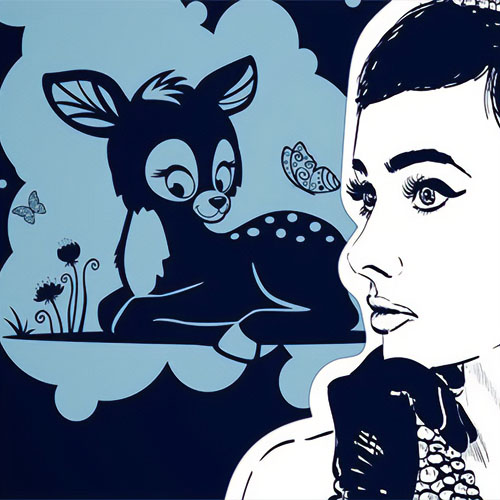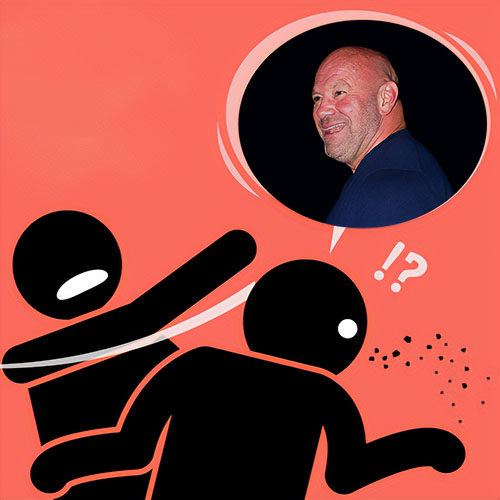Country Singer Willie Nelson Still Reigns as an American Original — in Both Spirit and Song
Willie! … Earning that Single Name
Legendary singer/songwriter Willie Nelson just keeps getting better with age. This year, the Red-Headed Stranger, now 90 years old, scored two Grammy Award wins — best country album for A Beautiful Time and best country solo performance for “Live Forever” from Live Forever: A Tribute to Billy Joe Shaver.
Just this March, the country crooner released I Don’t Know a Thing About Love, his 73rd solo studio album. This most recent record also serves as a nostalgic look back at his storied past. Its ten tracks — including the lead single “Busted” — were all written by the late Harlan Howard, who gave Willie his first job as a songwriter at the publishing company Pamper Music.
Before Willie took up the mantle as one of the main figures in outlaw country music — a subgenre which emerged in the late ’60s in defiance of conservative Nashville — he was writing tunes that have since become classics. Roy Orbison made it into the Top 10 of Billboard’s Adult Contemporary Chart with Willie’s “Pretty Paper,” and Patsy Cline immortalized his composition “Crazy” by making it her signature song.
Willie emerged as one of the most dynamic talents in country during the ’70s as he forged his own path away from the bright lights of Tennessee’s Music City.
“When I left Nashville, I went to Texas because that’s where I came from,” he explains. “I was playing in Texas a lot in different places. And I saw hippies and rednecks drinking beer together and smoking dope together and having a good time together, and I knew it was possible to get all groups of people together — long hair, short hair, no hair — and music would bring them together.”
Willie says, “I called Waylon Jennings and I said: ‘Waylon, you need to get down to Austin because it’s really happening here. There are people here with hair dragging the ground that will love your music.’ He laughed a little bit, then he came down and found out I was telling the truth.”
During the ’80s, Willie became a crossover success with the well-known hits “Always on My Mind,” “On the Road Again” and “To All the Girls I’ve Loved Before,” his duet with Julio Iglesias.
Throughout his career, Willie has also proven himself to be a champion of individualism — and a forward-thinking cultural icon.
In 1985, Willie — along with Neil Young and John Mellencamp — organized the first Farm Aid concert to shine a spotlight on the plight of struggling American farmers and raise funds to keep families on their land. The nonprofit Farm Aid organization is still going strong and doing its part to help farmers thrive.
Though perhaps the “outlaw” label originally applied to Willie’s music does not necessarily fit him today, one cannot deny this musical maverick has had a colorful history which has occasionally landed him in hot water.
Willie saw his assets seized in 1990 when the Internal Revenue Service (IRS) claimed he owed $32 million in back taxes. Two years later, he released the cheekily titled double-album The IRS Tapes: Who’ll Buy My Memories? The record’s sales — along with an auction of his seized property — helped him settle his negotiated debt with the feds.
But there was one item that was not part of the notorious auction — his beloved acoustic guitar, Trigger. The Martin N-20, which is named in honor of Roy Rogers’ horse, was the only thing Willie rescued from the inferno that destroyed his home in Ridgetop, Tenn., in 1969. The instrument boasts a literal history beyond the music it makes, being covered with autographs from country greats — including fellow outlaw legends Johnny Cash and Kris Kristofferson — and has a hole worn in it from the musician’s pick. But when Willie was tangling with the IRS, he asked his daughter Lana to take Trigger out of his Texas home and ship it to him in Hawaii, and it remained out of sight until his tax troubles were put to bed.
Known for his affinity for marijuana and his efforts toward its legalization, Willie also notched multiple arrests for possession — but he never saw his freedom go up in smoke.
The “Roll Me Up and Smoke Me When I Die” singer even credits cannabis with saving him. Willie claims his life would have been much shorter “if I’d have kept drinking and smoking like I was when I was 30, 40 years old.”
He shares, “I think that weed kept me from wanting to kill people,” and it “probably kept a lot of people from wanting to kill me, too — out there drunk, running around.”
Willie doesn’t toke anymore and reveals, “I have abused my lungs quite a bit in the past, so breathing is a little more difficult these days and I have to be careful.” But he launched Willie’s Reserve — a “trailblazing line of marijuana products” — in 2016 as cannabis became legal in numerous locales. He later followed it up with Willie’s Remedy, a wellness brand which features hemp cannabidiol items.
“I think people need to be educated to the fact that marijuana is not a drug,” says Willie. “Marijuana is an herb and a flower. God put it here. If He put it here and He wants it to grow. What gives the government the right to say that God is wrong?”
With 25 No. 1 hits, more than 30 film appearances and a lifetime spent marching to the beat of his own drum, Willie Nelson — our human of the moment — represents a true American original.
For the record, you can find more Willie here in our Legacy section, the first time we profiled him back in September of 1979. He was barely 40 back then. Fifty years later that man still tours. It can make you tired just thinking about it.
Finally, granted the magazine always finds itself under space limitation, although it still seems a crime that the editors did not mention the most spectacular instance in his history when Willie shined as both a musician and an actor — that being The Electric Horseman (in case you did not know that already). Seriously, how do you compete with is most famous line from the show, “I’m going to get me a bottle of tequila and find me one of them Keno girls that can suck the chrome off a trailer hitch, and just kinda kick back.” … Our heroes have always been cowboys too.





















